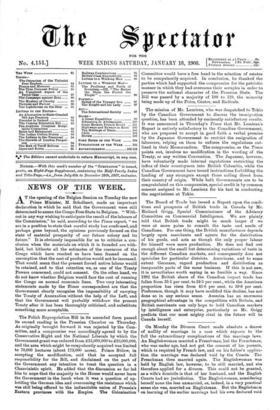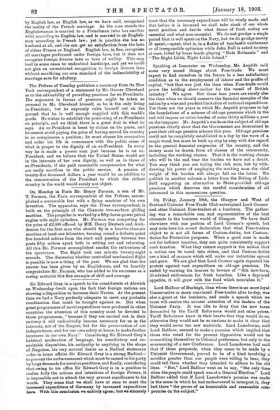On Monday the Divorce Court made absolute a decree of
nullity of marriage in a case which exposes to the full the extraordinary complications of the marriage laws. An Englishwoman married a Frenchman, but the Frenchman, who was under age, had not got the consent of his parents, which is required by French law, and on his father's applica- tion the marriage was declared void by the Courts. .The Frenchman . then married again. The Englishwoman was held by English law, however, to be still married, and she therefore applied for a divorce. This could not be granted, as a wife's domicile is that of her husband, and the English Courts had no jurisdiction. The Englishwoman, considering herself none the less unmarried, as, indeed, in a very, practical sense she was, married an Englishman. But the Englishman on learning of the earlier marriage had his own declared void by English law, as English law, as we have said, recognised the reality of the French marriage. As the case stands the Englishwoman is married to a Frenchman (who has another wife) according to English law, and Is married to an English- man according to French law ; yet in practice she has no husband at all, and she oan get no satisfaction from the laws of either France or England. Eiglish few, in fine, recognises all marriages performed under foreign laws, but it does not recognise foreign divorce laws or laws of nullity. This may lead in some cases to undoubted hardships, and yet we Could not give an unrestricted recognition to foreign divorce laws without sacrificing our own standard of the indissolubility of marriage save for adultery.







































